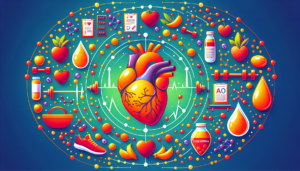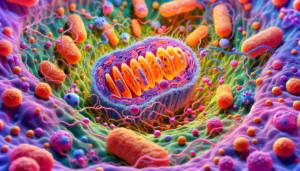Collagen Support for Optimal Gut Health
Collagen Support for Optimal Gut Health
Understanding Collagen
Collagen is the most abundant protein in the human body, comprising about 30% of total protein mass. It serves as a major component of connective tissues, providing structure and strength to skin, bones, tendons, ligaments, and cartilage. In recent years, collagen has gained popularity for its potential benefits beyond skin health. A growing body of research suggests that collagen may play a crucial role in supporting gut health, making it an essential nutrient for overall well-being.
Types of Collagen
There are more than 28 types of collagen, but the majority in our body falls into five major categories:
- Type I: The most prevalent type found in skin, tendons, organs, and ligaments.
- Type II: Primarily found in elastic cartilage, providing support to joints.
- Type III: Typically found alongside type I in skin and blood vessels, this type is important for tissue repair.
- Type IV: Located in the layers of the skin and other membranes, this type aids filtration.
- Type V: Involved in the development of hair and the tissue that surrounds certain organs.
Collagen Production and Its Decline
The body naturally produces collagen, but production declines with age, influenced by factors such as stress, poor diet, smoking, and UV exposure. By the age of 30, collagen synthesis decreases by about 1% each year. This decline can lead to various health issues, including skin aging, joint problems, and compromised gut health.
The Gut Microbiome and Its Importance
The gut microbiome comprises trillions of bacteria, fungi, viruses, and other microorganisms in our digestive system. A balanced microbiome is vital for digestion, metabolism, immune function, and protecting against pathogens. Dysbiosis, or an imbalance in gut bacteria, can result in various gastrointestinal issues, inflammation, and systemic health problems.
Gut Health Indicators
- Digestive Discomfort: Symptoms such as bloating, gas, constipation, and diarrhea can indicate poor gut health.
- Food Sensitivities: Unexplained reactions to certain foods might suggest that the gut lining is compromised.
- Fatigue & Mood Swings: Gut health is closely linked to mental health; imbalances can lead to mental fatigue and mood disorders.
Collagen and Gut Health Connection
Strengthening the Gut Lining
Collagen plays a significant role in maintaining the integrity of the gut lining. One of the primary components of the gut lining is a type of collagen called type IV. This collagen helps form a protective barrier, preventing toxins and pathogens from entering the bloodstream. A compromised gut lining can lead to "leaky gut syndrome," which is associated with various autoimmune conditions, food sensitivities, and systemic inflammation.
Gut Repair and Maintenance
Collagen contains specific amino acids, such as glycine and proline, that are crucial for tissue repair and healing. These amino acids contribute to the restoration of the gut’s epithelial cells, which are responsible for nutrient absorption and barrier function. Supplementing with collagen may help accelerate the healing process in individuals suffering from gastrointestinal disorders.
Reducing Inflammation
Chronic inflammation is at the root of numerous health issues, including gut-related ones. Collagen supplementation may help reduce inflammation in the gut, potentially alleviating symptoms associated with inflammatory bowel disease (IBD) and related gastrointestinal disorders.
Promoting Beneficial Gut Bacteria
The amino acids found in collagen can support the growth of beneficial gut bacteria. A diverse and balanced microbiome contributes to improved digestion and may enhance immune function, leading to better overall health.
Collagen Sources
Collagen Supplements
Collagen supplements, available in various forms such as powders, capsules, and liquids, are derived from animal sources, primarily:
- Bovine: Sourced from cattle, predominantly rich in type I and type III collagen.
- Marine: Extracted from fish, known for high bioavailability and absorption.
- Pork: Often contains a high concentration of type I collagen.
- Chicken: Primarily provides type II collagen, beneficial for joint health.
Choosing a high-quality collagen supplement, preferably hydrolyzed collagen, is essential. Hydrolyzed collagen has been broken down into smaller peptides, enhancing absorption and efficacy.
Natural Food Sources
Incorporating foods rich in collagen or that promote its production can significantly benefit gut health:
- Bone Broth: A rich source of collagen, gelatin, and amino acids that can soothe the gut lining.
- Chicken Skin: Contains significant amounts of collagen, particularly type II.
- Fish: Provides marine collagen, essential for joint and gut longevity.
- Eggs: Eggshell membranes are rich in collagen and amino acids that support gut repair.
- Leafy Greens: While not collagen itself, they contain nutrients needed for collagen production, such as vitamin C.
Additional Nutrients Supporting Gut Health
Vitamin C
Vitamin C is crucial for collagen synthesis. It aids in the conversion of proline to hydroxyproline, stabilizing the collagen structure. Consuming foods like oranges, strawberries, and bell peppers alongside collagen-rich foods can enhance its benefits.
Zinc
Zinc plays a vital role in cellular repair and is essential for maintaining the gut lining. Foods high in zinc include oysters, red meat, poultry, beans, nuts, and whole grains.
Omega-3 Fatty Acids
Omega-3 fatty acids are known for their anti-inflammatory properties. They can help manage inflammation in the gut, fostering a healthier microbiome. Sources include fatty fish, flaxseeds, and walnuts.
Gut-Healthy Recipes with Collagen
Collagen-Packed Smoothie
Ingredients:
- 1 scoop of collagen peptides
- 1 banana
- 1 cup of spinach
- 1/2 cup of Greek yogurt
- 1 tablespoon of almond butter
- 1 cup of almond milk
Instructions:
- Blend all ingredients until smooth.
- Serve immediately for a nutrient-rich breakfast or snack.
Healing Bone Broth
Ingredients:
- 2-3 lbs of bones (beef, chicken, or fish)
- 1 onion, quartered
- 3 carrots, chopped
- 3 celery stalks, chopped
- 1 tablespoon of apple cider vinegar
- Water
Instructions:
- Place all ingredients in a large pot or slow cooker.
- Cover with water and bring to a boil.
- Reduce to a simmer and cook for 12-24 hours.
- Strain the broth before serving or storing.
Collagen Supplement Recommendations
When selecting collagen supplements, consider the following factors:
- Source: Choose a source that aligns with your dietary preferences (e.g., marine for pescatarians).
- Hydrolyzed Collagen: Opt for hydrolyzed collagen for better absorption.
- Third-party Testing: Ensure the product has been tested for purity and potency by an independent lab.
- Additives: Avoid supplements with unnecessary fillers, sugars, or artificial ingredients.
Potential Side Effects
Although collagen is generally safe for most people, some may experience mild gastrointestinal discomfort, including a feeling of fullness or a bad taste in the mouth. It’s essential to start with a smaller dose and gradually increase it while monitoring your body’s response.
Conclusion on Collagen for Gut Health
Incorporating collagen into your diet, whether through supplements or natural food sources, can provide significant benefits for gut health. Its ability to support and repair the gut lining, reduce inflammation, and promote a healthy microbiome positions collagen as a vital component for optimal digestive health. Pairing collagen with essential nutrients and a balanced diet can pave the way for improved overall wellness and vitality, underscoring the importance of prioritizing gut health in our pursuit of holistic well-being.








